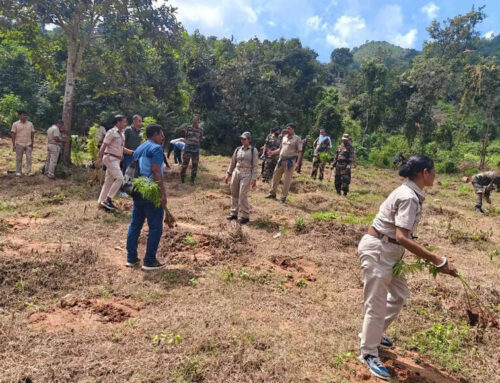Who Benefits From Virginia’s Cannabis Chaos? Small Businesses Want Answers
October 8, 2025
Editor’s note: A quick distinction matters here. When Virginia lawmakers talk about “cannabis,” they’re really talking about two overlapping but very different markets. Hemp, low-THC cannabis that’s federally legal under the 2018 Farm Bill signed by President Trump, is what thousands of small Virginia retailers currently sell in the form of CBD or THCA products. Marijuana, which contains higher levels of THC, remains illegal to sell for adult use. The confusion between the two has created a gray area of regulation and confusion among lawmakers, law enforcement, business and consumers.
You can read our recent reporting:
The New Corner Store: How Vape Shops Took Over Richmond HERE
Virginia’s Cannabis Battlefield: Big Players, Small Shops, and a Fight Over the Future HERE
At Stone Brewing in Richmond, the after-hours crowd of small cannabis entrepreneurs looked like a support group that had just survived an ambush. Hours earlier, many of them sat through a General Assembly session meant to gather community input on Virginia’s long-awaited framework for adult-use cannabis sales. But by the end of the hearing, it didn’t feel like the community had been heard, it felt like maybe the verdict was already written.
“It was orchestrated,” one small-business owner said, still visibly frustrated. “They made us look like criminals, and then called it safety.”
Inside the General Assembly Building earlier that day, lawmakers, state officials, and invited presenters had gathered for what was billed as a public listening session on how Virginia should move from decriminalization to a functioning retail market. On paper, it sounded like progress. In practice, the microphone seemed to belong to only one side, the big players in medical cannabis, known as multistate operators, or MSOs.
Representatives from Virginia NORML, Columbia Care, and several industry consultants framed their testimony around public safety and regulatory control, ideas that, depending on who you ask, either protect Virginians or protect a monopoly. For many in attendance, this was the first time MSOs had shown up so visibly, and with such coordinated messaging.
One of the most talked about moments of the day came from Dr. Michelle Peace, a forensic toxicologist from VCU whose lab has become the state’s go-to source for analyzing vape and hemp products. Her presentation was, as one lawmaker put it, “frightening.” She described recent multi-jurisdictional raids that turned up hundreds of pounds of illegal product, firearms, and, according to early reports later retracted by law enforcement, what was initially described as an “improvised explosive device.” Her lab, she said, had tested many of the seized materials and found potent synthetic cannabinoids, mislabeled THC concentrations, and contaminated vape oils, including one sample that contained fecal matter.
Dr. Peace called the situation “widespread” and “deeply concerning,” and urged lawmakers to expand funding for testing and enforcement. She made the case that her lab, the only one in Virginia with the capability to keep pace with the fast-moving hemp and vape market, should be the one to lead that work. Lawmakers on the panel seemed receptive, nodding as she described the need to “capture more schools” and “close gaps” in the state’s testing infrastructure.
Then came the exchange that summed up the mood in the room.
“If I go into a store that says ‘vapes’ or ‘hemp CBD,’ what percentage of those stores would you say are fully compliant, meaning they’re not selling anything illicit or illegal?” one delegate asked.
“No,” Peace replied. “That is not my experience, this is everywhere. This is widespread.”
The implication: according to the state’s leading forensic expert, nearly every vape or hemp shop in Virginia was breaking the law.
For the small business owners in the audience, many of whom had spent the past year registering products, paying fees, and complying with every shifting state rule, it felt like a public indictment.
“They’re exploiting those stories,” one Richmond advocate said afterward. “No one’s denying there are bad actors. But to paint every shop as a criminal enterprise? That’s not safety, that’s strategy.”
By the end of the session, the message was clear: Virginia’s hemp market was unsafe, enforcement needed to expand, and the clearest path to regulation ran straight through state-funded labs and large, licensed medical operators.
Dr. Peace’s testimony didn’t spark Virginia’s cannabis crackdown, it simply confirmed what small business owners have already been living through. In recent weeks, state and local authorities have carried out coordinated raids on vape and hemp retailers across the Richmond region, turning what was once a regulatory gray area into criminal territory.
On September 24, police raided multiple vape shops, seizing hundreds of pounds of marijuana and THC edibles, along with firearms and cash. A week later, Henrico authorities executed ten more search warrants, charging eight people and confiscating more than sixty pounds of flower, twelve pounds of edibles, and roughly $100,000. Early reports of an “explosive device in progress” were later retracted, but the damage was done. Vape shops had become a convenient symbol of public danger.
Around the same time, the U.S. Drug Enforcement Administration announced Operation Vape Trail, a nationwide effort that seized more than two million vape devices and over one hundred firearms. That federal show of force gave Virginia political cover to push harder. The message was simple: this was about safety. The timing, however, was hard to ignore.
What changed in Virginia wasn’t the law, it was its enforcement. The state’s definition of hemp, expanded in 2023 to include “total THC” rather than just delta-9 THC, had been on the books for over a year. But for months, officials with the Virginia Department of Agriculture and Consumer Services (VDACS) told retailers they were not enforcing the flower provisions. That changed abruptly this fall.
For small retailers, the shift felt like a trap.
“Right above your signature, it asks if you sell inhalable hemp products,” said one Richmond hemp business owner who requested anonymity due to fear of retaliation. “So people told the state yes, sent in their thousand dollars, and now that list is being used to target them.”
The same agency that collected those registration fees is now leading enforcement, applying edible standards to smokable flower and using total-THC limits so strict that even federally compliant hemp qualifies as marijuana: no more than two milligrams of THC per package or a 25-to-1 CBD-to-THC ratio.
As lifelong grower Nicolas Austin explained, those limits are scientifically impossible to meet.
“The math just doesn’t make sense,” he said. “THC and CBD occur naturally in opposite proportions, the more THC you have, the less CBD you’ll naturally have in it. A 25-to-1 ratio is really dumb. Plants just don’t grow that way.”
Even the best-balanced hemp strains top out near 1-to-1 or 2-to-1, meaning that under Virginia’s new rules, “even federally legal hemp becomes illegal overnight.”
“They told us for eight months they weren’t enforcing flower,” the Richmond retailer added. “Then suddenly, they decided to. Even the inspectors admitted it came from above.”
For many, the experience has been disorienting, and punishing. Shops that registered in good faith are now facing fines of $10,000 or more. Some have been raided; others have simply closed their doors.
“They told us one thing, we followed it, and now we’re getting hit,” the owner said. “The people who didn’t register might actually be safer. They’re using our own registration list as a hit list.”
Compliance, in other words, became self-incrimination.
What’s happening isn’t just bureaucratic confusion, it’s market engineering. By redefining hemp, criminalizing products that were once legal, and punishing the very retailers who tried to play by the rules, Virginia is quietly clearing the field. When adult-use cannabis sales finally begin, the survivors will be few, and they won’t be small businesses.
That reality wasn’t lost on Chelsea Higgs Wise, executive director of Marijuana Justice, who’s been watching the same forces shape the policy conversation in real time.
When small businesses get squeezed, someone always profits. In this case, it’s the same few players who’ve been waiting for the door to open.
“They were pro-medical, pro-big cannabis,” said Wise. “To say particularly that big cannabis should be the rollout startup folks, and they should be able to basically click on a switch and become adult-use… They’re also asking to keep that monopoly structure, all nine of their licenses, and then no one else will be able to get new product development licenses.”
Those nine licenses belong to the multistate operators that already control Virginia’s medical cannabis program. Under the framework being discussed, they would be the first, and possibly the only, businesses allowed to make the jump into adult-use sales when legalization takes effect.
Wise pointed out that the issue isn’t just the number of licenses, it’s the structure itself. The proposed system would allow those same companies to vertically integrate, meaning they could grow, process, and sell their own products while smaller operators are restricted to just one piece of the supply chain. “It locks everyone else out,” she said. “They can control everything from seed to sale, and they already do.”
“Virginia will never be Michigan,” Wise added. “We have such a hard stronghold on wanting to make sure that the number of cannabis dispensaries do not outnumber the number of ABC stores. We have about 400 ABC stores, so that’s where folks got the number from, about 350 licenses for dispensaries, particularly.”
That ratio, 350 dispensary licenses for the entire state, sets the stage for a tightly controlled, highly centralized market. The corporations that already hold the nine medical licenses would likely be among the first to secure those coveted positions. For thousands of hemp retailers, it’s a losing equation: the state shrinks the market, calls it safety, and hands the future to those already holding the keys.
The result is a two-tier system: safety for some, enforcement for others.
The debate over safety and compliance has become one of Virginia’s most effective tools for controlling who stays in the market. While lawmakers frame new rules as consumer protection, small operators see something else: a quiet consolidation of power.
When Dr. Michelle Peace told legislators that her VCU lab was the only one in Virginia capable of properly testing hemp and vape products, and that it needed more funding to expand, she was making a scientifically valid point. But the policy implications of that argument are far-reaching. Concentrating testing, certification, and enforcement within a single institution raises costs and limits access for smaller businesses. For large, vertically integrated medical operators, those expenses are manageable. For independent hemp retailers, they’re often prohibitive.
“We’re not against regulation,” said Barbara Biddle, co-founder of the Cannabis Small Business Association. “We just want it to be fair. We pay taxes. We follow labeling rules. We don’t sell to kids. But right now, it feels like they’re writing laws to get rid of us.”
Biddle said most small hemp retailers supported basic consumer safeguards like childproof packaging, dosage limits, and clear labeling but that enforcement has gone far beyond those intentions. “They took it too far,” she said. “They used safety as a Trojan horse to push small businesses out.”
An internal VDACS email obtained by RVA Magazine reflects that tension. Staff privately acknowledged to several retailers that recent inspection directives “came from above.” According to Biddle, that top-down pressure aligns with a broader shift toward corporate consolidation. “VDACS didn’t want to do this,” she said. “They were forced.”
For many small operators, the message is clear: enforcement isn’t just about protecting consumers. It’s about deciding who gets to stay in business. As Biddle put it, “Every new rule sounds reasonable until you realize who can actually afford to comply.”
In the middle of all this noise, some voices are calling for a bigger view. Max Jackson, founder of Cannabis Wise Guysand a consultant who’s worked with cultivators across the country, says Virginia is on track to repeat the same mistakes made elsewhere, overregulating in the name of control while pretending it’s about safety.
“Michigan’s open-license model showed what happens when you let people compete,” Jackson said. “They were doing about $12,000 in cannabis sales per 10,000 adults, just in flower, back in August. Compare that to Connecticut, which is heavily restricted and only hits around $3,400, or Colorado, which is closer to $8,500. The math speaks for itself.”
Jackson warned that the difference isn’t just about sales volume, it’s about access and policy design. “You can’t overtax and overregulate at the same time,” he said. “If you gatekeep the market, people just go right back to the illicit one. You don’t eliminate it, you just make it smarter.”
He’s seen the pattern across the map. “Florida’s medical program is a perfect example, it’s fully vertically integrated, and one company just opened its 82nd dispensary. They’re sitting there waiting for adult-use to pass, because the market’s already taken,” he said. “Arizona did the same thing, they gave out 26 social equity licenses, and now almost all of them have been bought up by corporate operators. You can hand someone a license, but you can’t stop a corporation from buying it.”
Jackson said that’s the quiet danger in so-called “limited license” states: scarcity makes the licenses themselves a commodity. “One company can hold sixty licenses in California,” he said. “You can protect small farmers on paper, but if you don’t cap ownership or restrict transfers, corporations will just buy them all up.”
For Jackson, the real lesson is simple: don’t let the people who profit from the monopoly write the rules. “Corporations do what corporations do,” he said. “You can’t fault them for that. But we don’t have to hand them the pen to write the legislation that keeps them in power.”
That point hits close to home. Richmond’s hemp scene has always been a mix of hustlers, healers, and innovators, the kind of small-scale entrepreneurs who turn warehouse districts into neighborhoods. Many saw hemp as a way to finally operate above ground. Now, some are asking whether the state’s crackdown is pushing them right back below it.
By the time the conversation at Stone Brewing wound down, there was frustration, but also clarity.
“We know what’s coming,” one business owner said. “They’ll say it’s about safety. But what they really want is control.”
In private group chats among hemp retailers, the tone has shifted from frustration to strategy. Some are now talking about forming a coalition, not just to survive, but to fight back politically. “We need a unified case for THCA flower,” one wrote. “Right now, it’s anti-all of us. I’d even take a tax if it meant fairness.” Others voiced frustration that only a few were communicating openly, warning that splintering would hand victory to the same forces trying to erase them. One message put it bluntly: “We’re really entering a realm of civil rights.”
The irony of Virginia’s cannabis crossfire is that everyone says they want the same thing: safety, fairness, a functioning market. Yet each step toward regulation seems to come at the expense of the people who built the industry from the ground up. If the current trajectory continues, the Commonwealth’s “adult-use” rollout may arrive to find an empty playing field, one where the only survivors are the companies that could afford to wait for the storm to pass.
For now, Virginia’s hemp business owners are watching, waiting, and quietly preparing for whatever comes next. Because in this version of legalization, staying in the game might be the hardest part.
Photo by Matteo Paganelli
Support RVA Magazine. Support Independent Media in Richmond.
At a time when media ownership is increasingly concentrated among corporations and the wealthy, RVA Magazine has remained one of Richmond’s few independent voices. Since 2005, the magazine has provided grassroots coverage of the city’s artists, musicians, and communities, documenting the culture that defines Richmond beyond the headlines.
But we can’t do this without you. A small donation, even as little as $2, one-time or recurring, helps us continue to produce honest, local coverage free from outside interference. Every dollar makes a difference. Your support keeps us going and keeps RVA’s creative spirit alive. Thank you for standing with independent media. DONATE HERE.
We’ve gotmerchHERE
Subscribe to the SubstackHERE
And RedditHERE
And YouTube HERE
Search
RECENT PRESS RELEASES
Related Post



